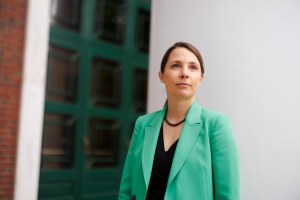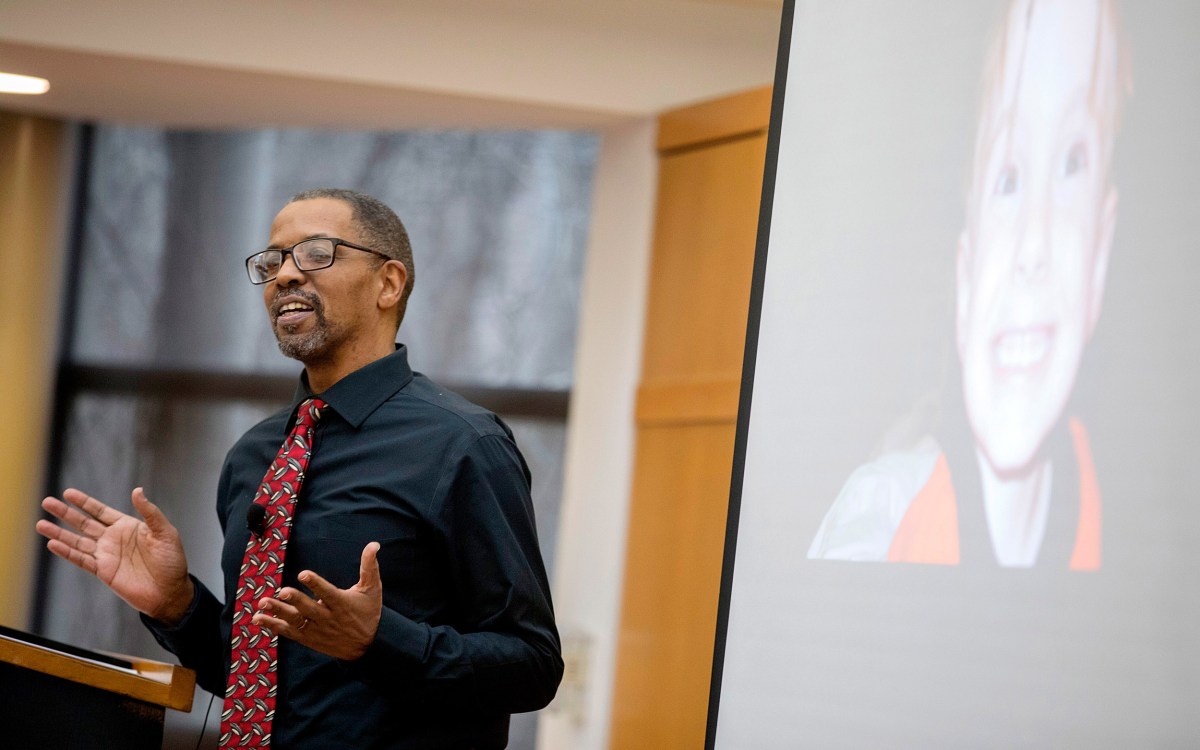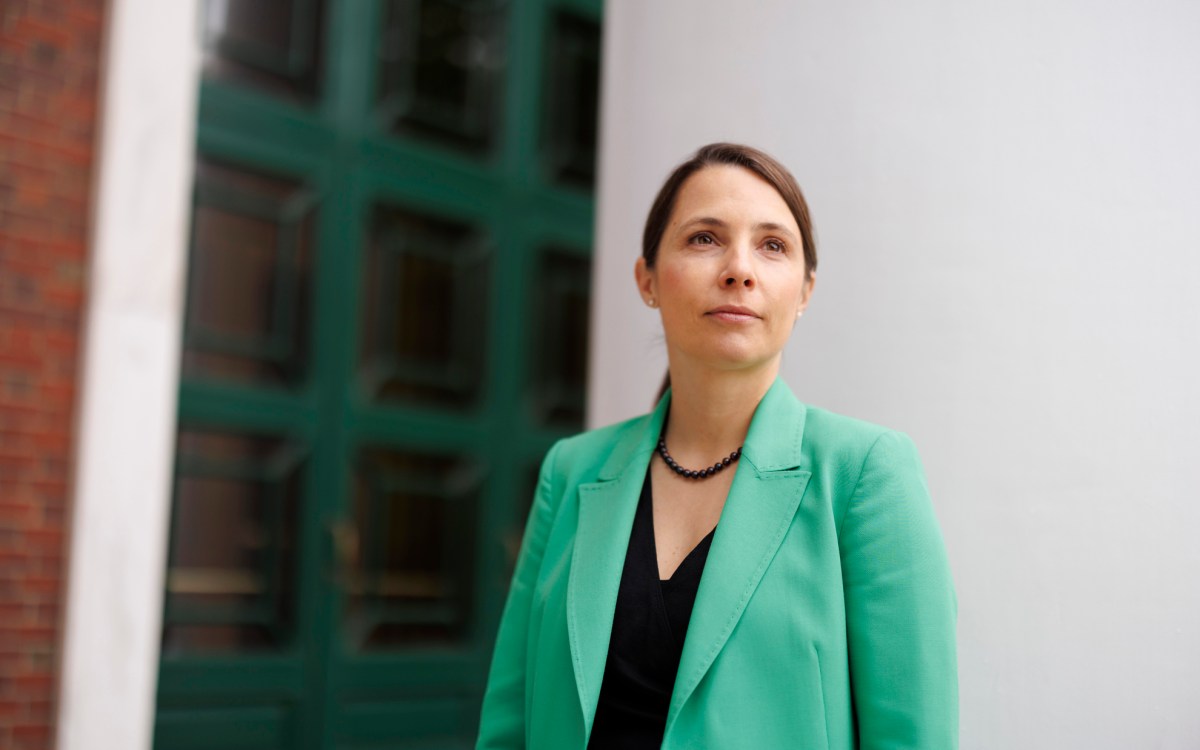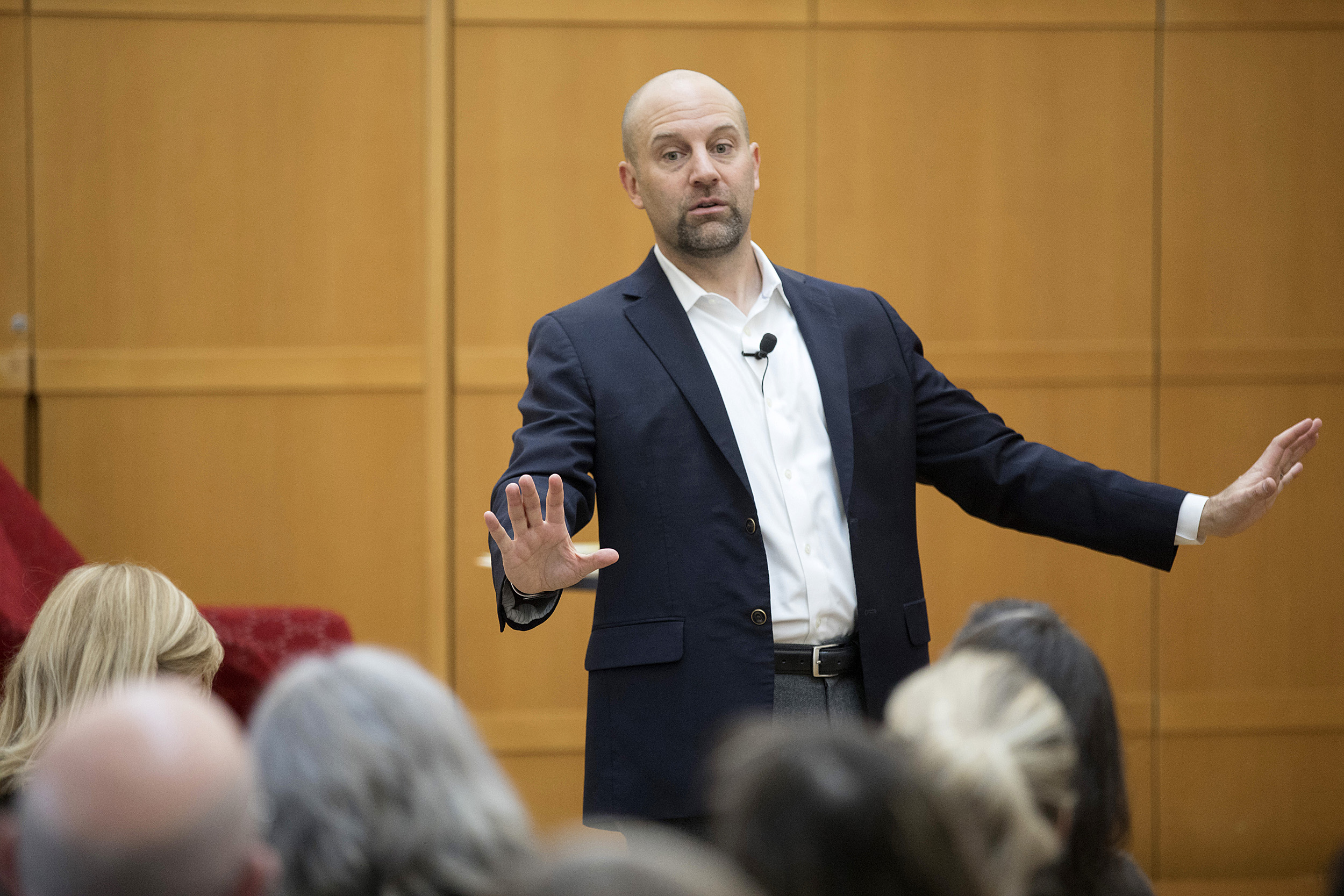
Motivational speaker Mike Robbins discusses how to bring your authentic self into the workplace, and why it’s important to do so.
Kris Snibbe/Harvard Staff Photographer
Vulnerability as a tool for strong leadership
Motivational speaker urges ‘authenticity’ in the workplace
Being authentic in the workplace — that is, exposing your stress, anxieties, pain, joys, good times, and bad — can make you feel exposed and vulnerable.
But, motivational speaker Mike Robbins argued at a recent Faculty of Arts and Sciences Diversity Dialogue, it can also make you more engaged, a stronger leader, and more fulfilled.
In “Storytelling to Enhance Inclusion: Authenticity at Work,” Robbins described authenticity as a continuum, with phoniness at one end and freedom and power at the other.
“If we want to move along the continuum to a more authentic direction, it takes courage,” he said. “What makes it hard to be authentic sometimes is the possibility of doing or saying something that [could leave you] excluded from the group.”
Robbins said achieving full authenticity requires several steps. Halfway along the continuum is being honest, where he said a lot of people stop because they want to be politically correct.
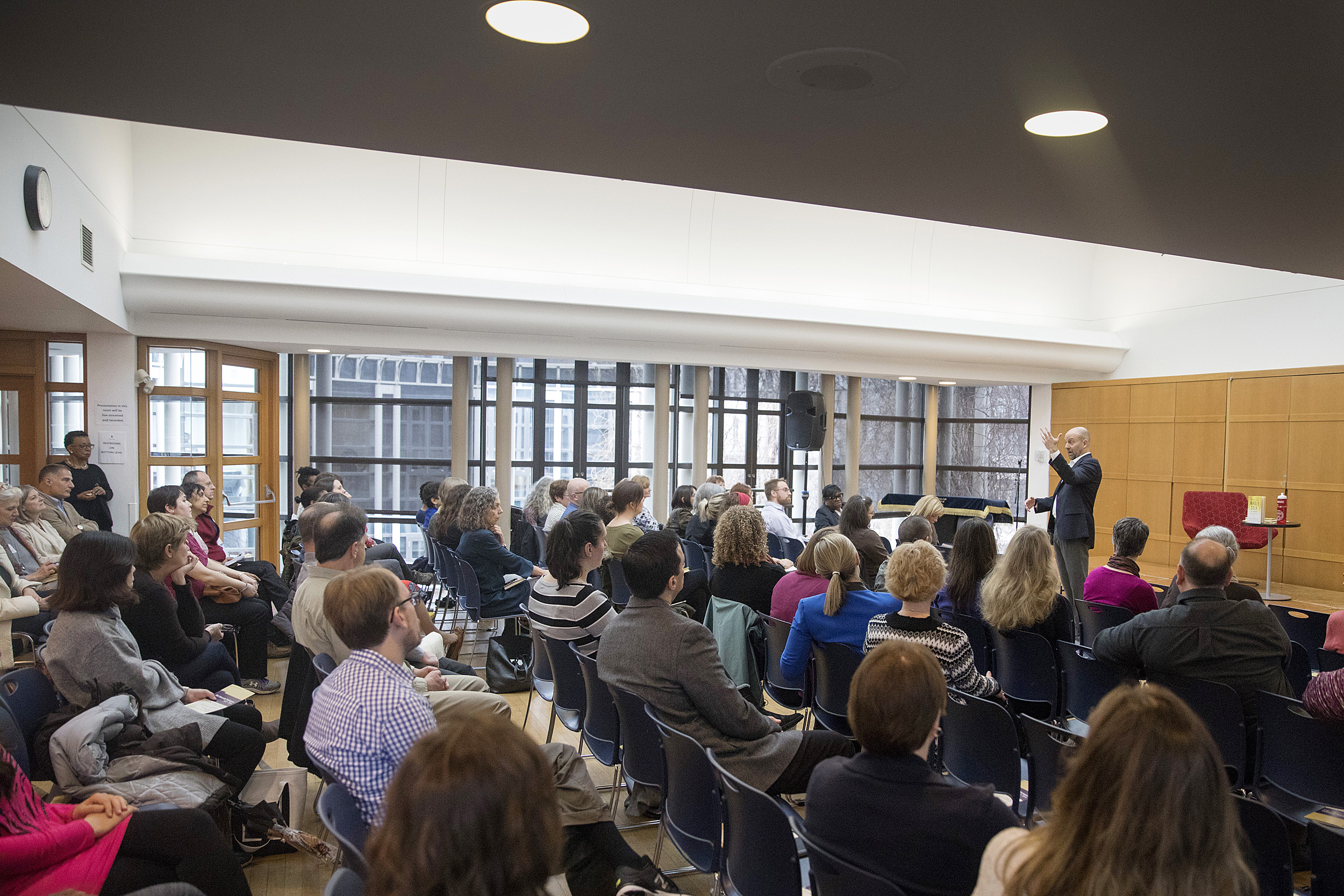
“Make-me-look-good honest, or not let people get offended or annoyed with me. With that, we operate on the negative side of the continuum, the phony side,” Robbins said. “To get to authenticity we have to remove something from our honesty, and add something to it. The thing we have to remove from our honesty is our self-righteousness.”
Robbins said everyone has opinions, especially when it comes to issues of race, gender orientation, inclusion, and culture, and those opinions are often passionate.
“That’s OK,” he said. “The issue is the self-righteousness with which we hold the opinion. If we hold that opinion with self-righteousness, that makes me right and you wrong. That’s the problem.”
He urged the audience to understand the difference between self-righteousness and conviction, which he defined as, “I believe this to be true and I’m willing to speak up about it. But I have enough humility to realize, I might be wrong. And, even if I’m not wrong, recognize that someone else might see this differently from the way I see it.”
Robbins cited research by the sociologist Erving Goffman to explain how people avoid exposing their authentic selves: “We cover. Covering [is] what happens when one feels one does not belong, feels vulnerable. We’re afraid of how we might be perceived,” and it’s common in the workplace, he said.
In a recent survey, Robbins said 61 percent of respondents reported covering in at least one of four categories: appearance, affiliation, advocacy, or association. Breaking the findings into cohorts, he said that 83 percent of LGBT individuals, 79 percent of blacks, 67 percent of women of color, 66 percent of women, and 63 percent of Hispanics cover. Even 45 percent of straight white men reported covering, he added.
In all workplace interactions, Robbins argued that “as important as it is to be prepared, it is as important or more important to be present, to really connect. It is important to bring one’s whole self to the conversation or situation.”
He said that one way to find common ground with co-workers is by telling sharing our personal stories and listening to those of other people.
“It gives us permission to say, ‘Me, too,’” he said.
Matias Ramos, director of programs at Phillips Brooks House Association, who attended the dialogue, agreed.
“As someone who works directly with student leaders in public service efforts, the workshop prepared me to lead with transparency, vulnerability, and confidence about how my story contributes to building a stronger university community,” he said. “Harvard is lucky to welcome some of the most talented students in the world each year. It’s on us to impart them an appreciation for diversity, authenticity, and service to others.”

